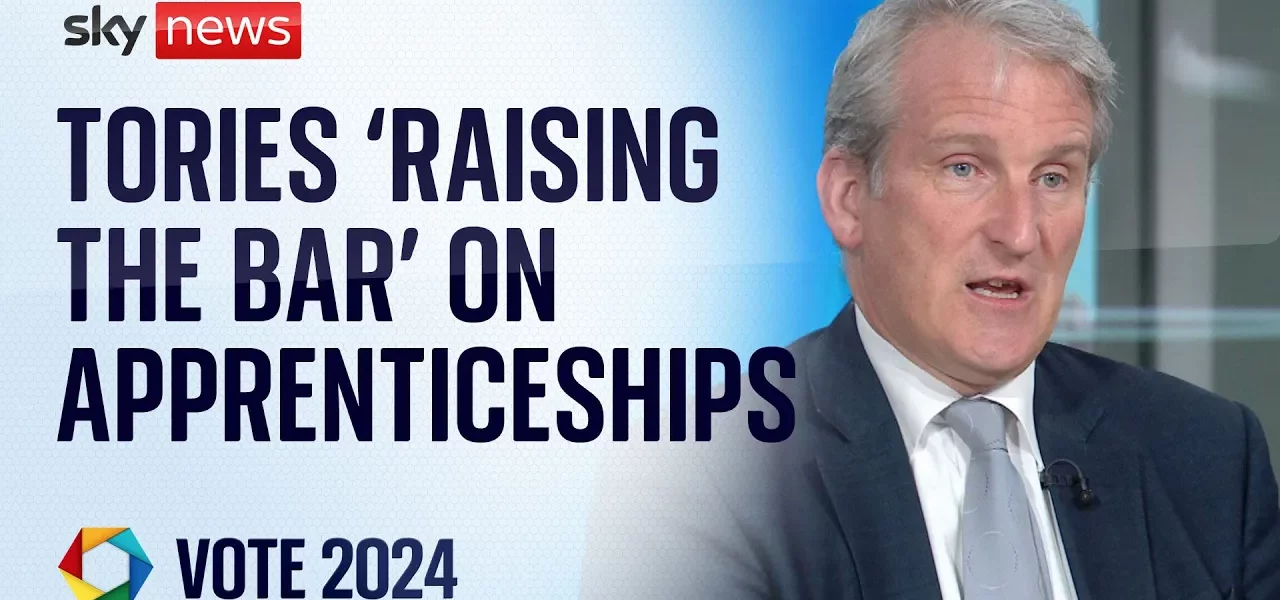Exploring the Future of Education: Apprenticeships vs. University Degrees

In a recent discussion, Damen Hines, Conservative MP for East Hampshire and Minister of State for Schools Standards, delves into the evolving landscape of education in the UK. He emphasizes the importance of ensuring high-quality opportunities for young people, whether through apprenticeships or university degrees, and addresses the controversial notion of “Mickey Mouse degrees.” This article explores the key points raised by Hines, shedding light on the government’s approach to education reform.
Introduction to the Education Debate
The conversation surrounding education in the UK has intensified, particularly regarding the value and quality of university degrees compared to apprenticeships. With the rising costs of higher education and the increasing concern about student debt, policymakers are re-evaluating how best to allocate resources to support young people’s future. Damen Hines, representing the Conservative party, outlines a vision that prioritizes high-quality education, whether through traditional university pathways or vocational training, particularly apprenticeships.
The Importance of High-Quality Opportunities
Damen Hines asserts that every young person deserves access to the best opportunities available, a sentiment that resonates deeply in discussions about education. He emphasizes that this is a crucial time in a young person’s life, one that can significantly impact their future career prospects. The government’s focus is on ensuring that every course offered, whether at university or through an apprenticeship, meets high standards of quality.
Investing in Apprenticeships
In recent years, the UK government has significantly invested in apprenticeships, aiming to enhance their quality and appeal. The goal is to create pathways that not only provide practical skills but also ensure that participants are well-prepared for the job market. Key initiatives include:
- Establishing minimum lengths for apprenticeships to ensure depth of training.
- Legislating that at least 20% of apprenticeship time is spent off-the-job for comprehensive learning.
- Creating the Institute for Apprenticeships to oversee standards and promote quality.
Addressing the Decline in Apprenticeship Starts
While the government has made strides in improving apprenticeship quality, Hines acknowledges a notable decline in apprenticeship starts, from 131,000 in 2015 to 77,000 in 2022. This decline indicates a pressing need for further investment and innovation in apprenticeship programs. Hines is clear that the aim is not merely to increase numbers but to ensure a robust, quality framework that meets the needs of both employers and learners.
Future Goals for Apprenticeships
Hines outlines ambitious plans to grow the number of high-quality apprenticeships by an additional 100,000, emphasizing that this expansion will not detract from university opportunities but rather complement them. The focus on quality over quantity is essential for improving the skills level across industries and boosting overall productivity in the economy.
Funding the Future of Education
A crucial question arises: how will the government finance the expansion of apprenticeships? Hines mentions that the expected cost of £900 million will be sourced through reductions in spending on underperforming university degrees. This approach aims to redirect funds towards more effective educational pathways.
The Role of University Degrees
While Hines acknowledges the importance of university education, he raises concerns about certain degrees that might not provide adequate return on investment for students. He emphasizes that not all courses deliver the same level of opportunity, and it’s essential to identify and address those that fall short.
Quality Measurement and Accountability
To ensure accountability, the government has established the Office for Students, an independent body that evaluates the quality of university courses. This includes measuring key performance indicators such as graduation rates and graduate employment outcomes. Hines asserts that this data-driven approach will help shape future funding decisions and course offerings.
Responding to Criticism
As the discussion unfolds, Hines faces questions about the government’s commitment to improving educational standards. Critics suggest that the term “Mickey Mouse degrees” has been used to disparage certain fields of study. Hines refutes this characterization, emphasizing that the focus should remain on specific courses rather than entire disciplines or institutions.
The Path Forward
Looking ahead, Hines outlines a vision of a diversified education system that values both academic and vocational training. He highlights the government’s commitment to attracting international students, thereby enriching the educational landscape while also providing financial support to universities.
Conclusion
The dialogue surrounding education in the UK is evolving, with significant attention on the balance between university degrees and apprenticeships. Damen Hines’ insights underline the critical need for high-quality educational opportunities that align with the demands of the modern workforce. As the government prepares to make substantial investments in apprenticeships, the focus remains on creating a system that benefits all young people. For those interested in the future of education, it is essential to stay informed and engaged with these discussions. We encourage readers to explore further articles on education policies and their implications for the future.
“`




